Night Scuba Diving
Explore the exciting world of night scuba diving with tips on gear, safety, marine life, and top destinations.
Ever thought about what happens under the sea when night falls? Night scuba diving lets you discover a different side of the ocean. In the dark, many sea creatures come alive, and the underwater world turns into a mysterious place full of wonders. If you're curious about this thrilling experience, this guide will tell you all about it!
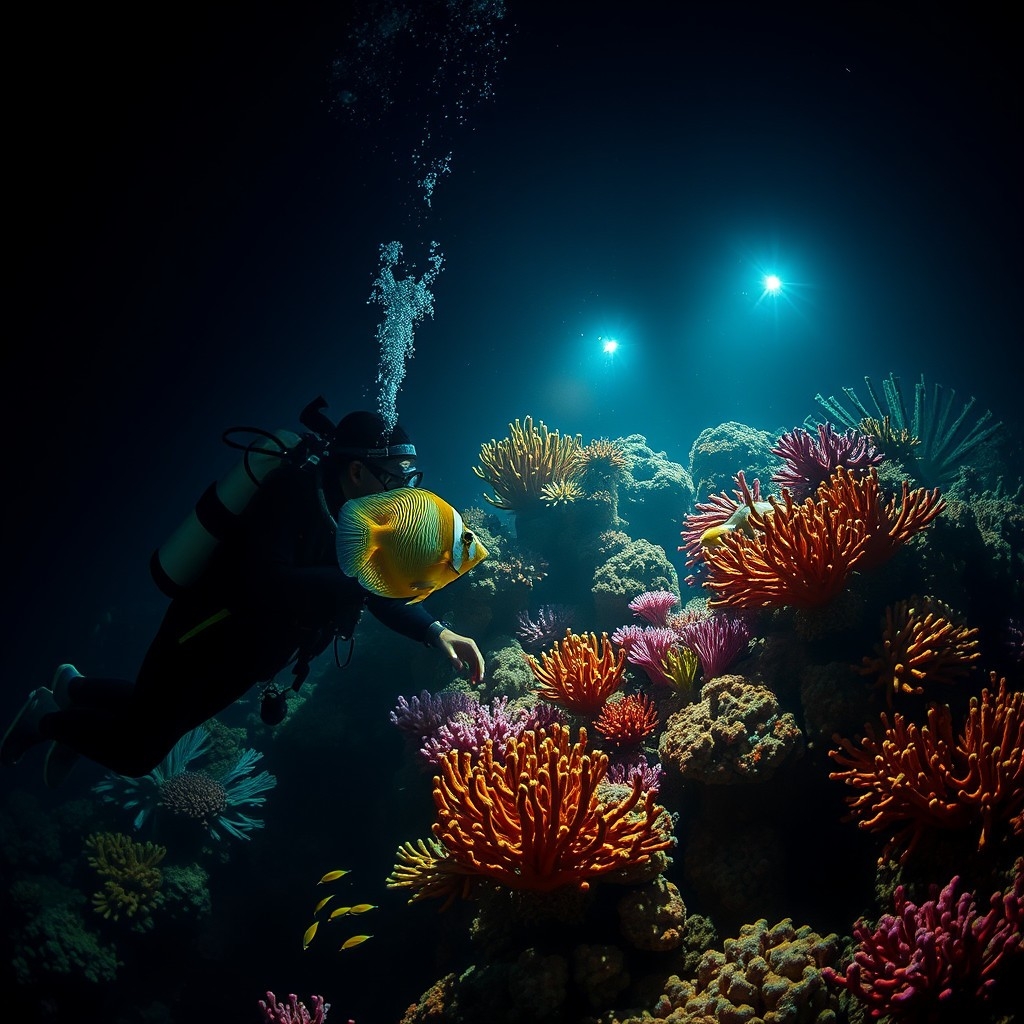
Why Try Night Scuba Diving?
Night diving is a special adventure that offers sights and experiences you won't get during the day. As the sun sets, familiar dive spots become new and exciting again. Here are some great reasons to dive after dark:
Meet Nocturnal Creatures: Many animals are more active at night. You might see octopuses hunting, lobsters scurrying around, or sharks swimming by.
Brighter Colors: Your dive light shows the true colors underwater, making corals and fish look more vivid than in daylight.
Peaceful Environment: With fewer divers around, you can enjoy a calm and immersive experience.
Bioluminescence: See glowing organisms that light up when disturbed, creating a natural light show.
Fresh Perspectives: Limited visibility sharpens your senses, making every sight and sound more intense.
Getting Ready for Your First Night Dive
Preparing for a night dive takes a few extra steps compared to daytime diving. Here's how to set yourself up for success:
Know the Dive Site
If possible, dive the site during the day first. Knowing the area's layout helps you navigate more confidently at night. Notice landmarks like rock formations, coral structures, and sandy spots that can guide you.
Refresh Your Skills
Being comfortable with your diving skills is key. Focus on:
Buoyancy Control: Good buoyancy helps you avoid touching the reef or stirring up sediment.
Navigation Skills: Practice using a compass and recognizing natural features to find your way.
Communication Signals: Review hand signals and agree on light signals with your dive buddy.
Plan the Dive with Your Buddy
Discussing the dive plan in detail ensures you and your buddy are on the same page. Consider:
Depth and Time Limits: Set limits that match your experience.
Entry and Exit Points: Pick spots that are easy to access in low light.
Emergency Plans: Decide what to do if you get separated or have equipment issues.
Check Your Gear Thoroughly
Make sure all your equipment is working properly. Pay special attention to your lights and backup gear. Replace batteries if needed and test everything before the dive.
Must-Have Gear for Night Scuba Diving
Having the right gear makes your night dive safer and more enjoyable. Here's what you'll need:
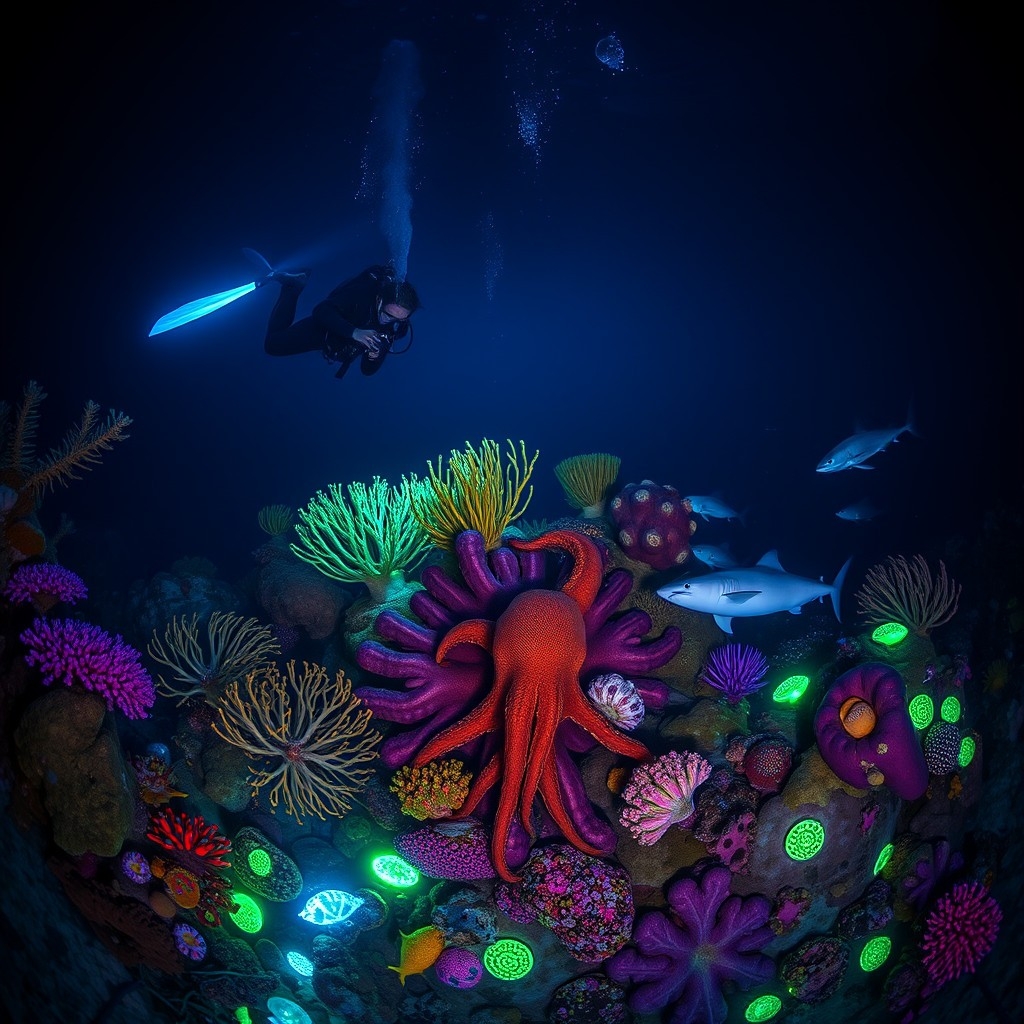
Primary Dive Light
Your main light illuminates your surroundings and helps you communicate. Look for a light that is:
Bright: A strong beam lets you see farther and spot more sea life.
Reliable: Waterproof and sturdy for the underwater environment.
Easy to Use: Comfortable grip and simple controls are important.
Backup Light
Carry a second light in case your main one fails. A small, compact torch that fits in a pocket or clips onto your gear works well.
Marker Lights or Tank Glow Sticks
Attach a glow stick, LED marker, or reflective tape to your tank or gear. This helps your buddy keep track of you underwater.
Compass and Dive Computer
A compass helps you navigate when visual cues are scarce. Your dive computer tracks depth, time, and no-decompression limits, which is essential for safety.
Surface Signaling Devices
Carry a surface marker buoy (SMB), whistle, or signaling mirror. These tools can help you attract attention if needed.
Comfortable Exposure Suit
Water can feel cooler at night. Wearing a wetsuit that keeps you warm makes your dive more comfortable.
Safety Tips for Diving After Dark
Safety is crucial when exploring underwater at night. Here are some tips:
Stay Close to Your Buddy
Keep within arm's reach of your dive buddy. Regularly check in with each other using hand signals or light flashes.
Use Lights Carefully
Don't shine your light directly into another diver's eyes. Signal your buddy by waving your light or moving it in a specific way.
Check Your Gauges Often
It's easy to lose track of time and depth in the dark. Frequently check your dive computer and air pressure gauge.
Move Slowly and Gently
Take your time to avoid startling sea life or damaging the environment. Slow movements also help conserve air.
Be Aware of Your Surroundings
Pay attention to what's around you. Look up, down, and to the sides to fully enjoy the dive and spot any potential hazards.
Let Someone Know Your Plan
Tell someone on land about your dive location, how long you'll be underwater, and when you plan to return.
Respect Marine Life
Some creatures are sensitive to light. Try not to shine your light directly on animals for long periods, and give them space.
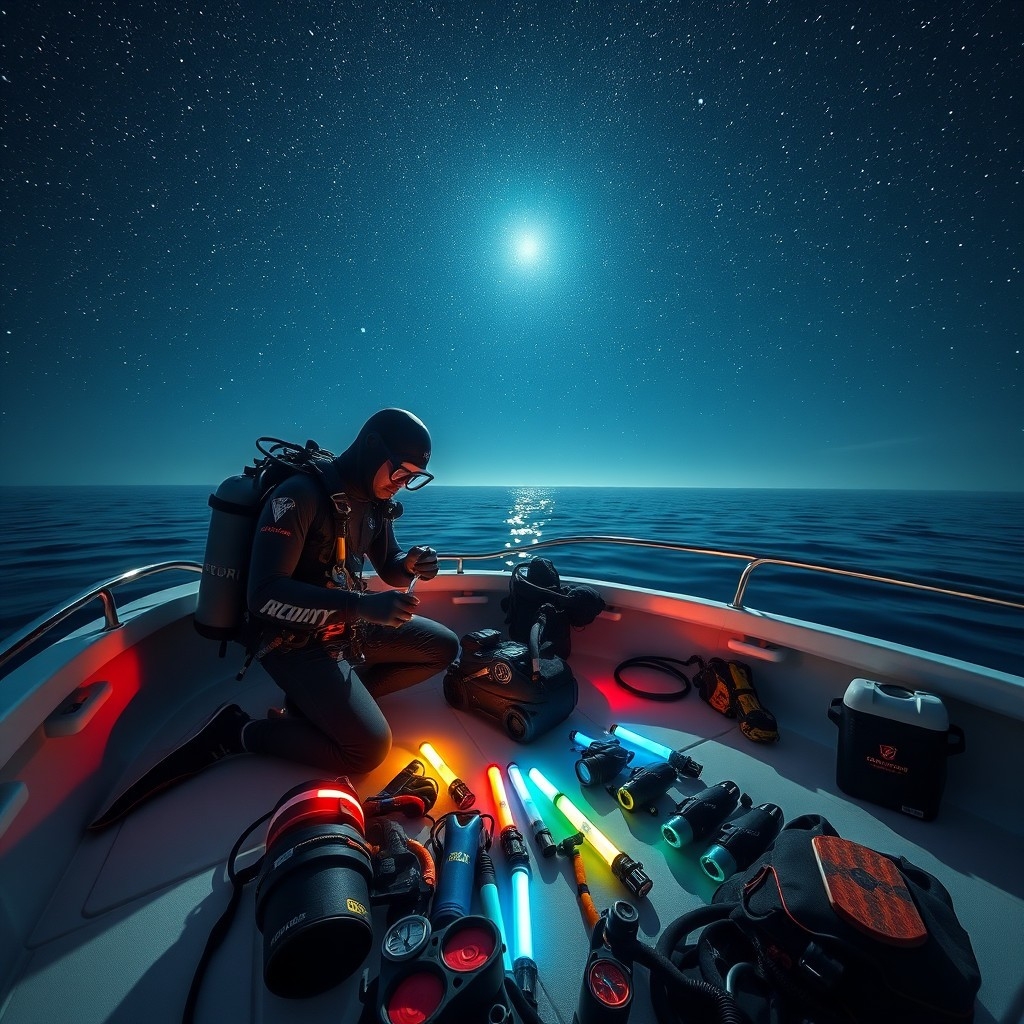
Training and Certification for Night Diving
While not always required, getting proper training boosts your confidence and safety. Here's what to think about:
Night Diving Courses
Many diving organizations offer night diving specialty courses. These classes teach:
How to Use Lights Properly: Learn to handle your primary and backup lights effectively.
Night Navigation Skills: Get experience in navigating without daylight.
Emergency Procedures: Understand how to handle unexpected situations.
Benefits of Certification
Completing a night diving course provides:
Enhanced Safety: Training prepares you for the challenges of night diving.
Improved Skills: Practice under the guidance of an instructor helps refine your abilities.
Recognition: A certification card shows dive centers that you have the necessary skills.
Photography and Videography at Night
Taking pictures underwater at night can be rewarding. Here's how to make the most of it:
Equipment Tips
Underwater Camera Housing: Make sure your camera is properly protected.
Strobes and Lights: Use extra lighting to illuminate subjects.
Stable Platform: Consider using a tripod or stabilizer to reduce motion blur.
Tips for Great Shots
Get Close to Your Subject: Reduces the amount of water between you and the subject, improving clarity.
Be Patient: Wait for the right moment, especially with shy creatures.
Maintain Good Buoyancy: Steady positioning helps you compose better shots.
Handling Fear and Anxiety During Night Dives
Diving in the dark can be scary, especially for first-timers. Here are some ways to feel more at ease:
Dive with an Experienced Buddy
Having someone knowledgeable by your side can boost your confidence.
Start Shallow
Begin with shallow dives to get comfortable before moving on to deeper sites.
Focus on Breathing
Take deep, steady breaths to stay calm and relaxed.
Use Familiar Gear
Using equipment you're comfortable with reduces stress and lets you focus on the experience.
Imagine a Successful Dive
Before entering the water, picture yourself having a great dive. Positive thinking can make a big difference.
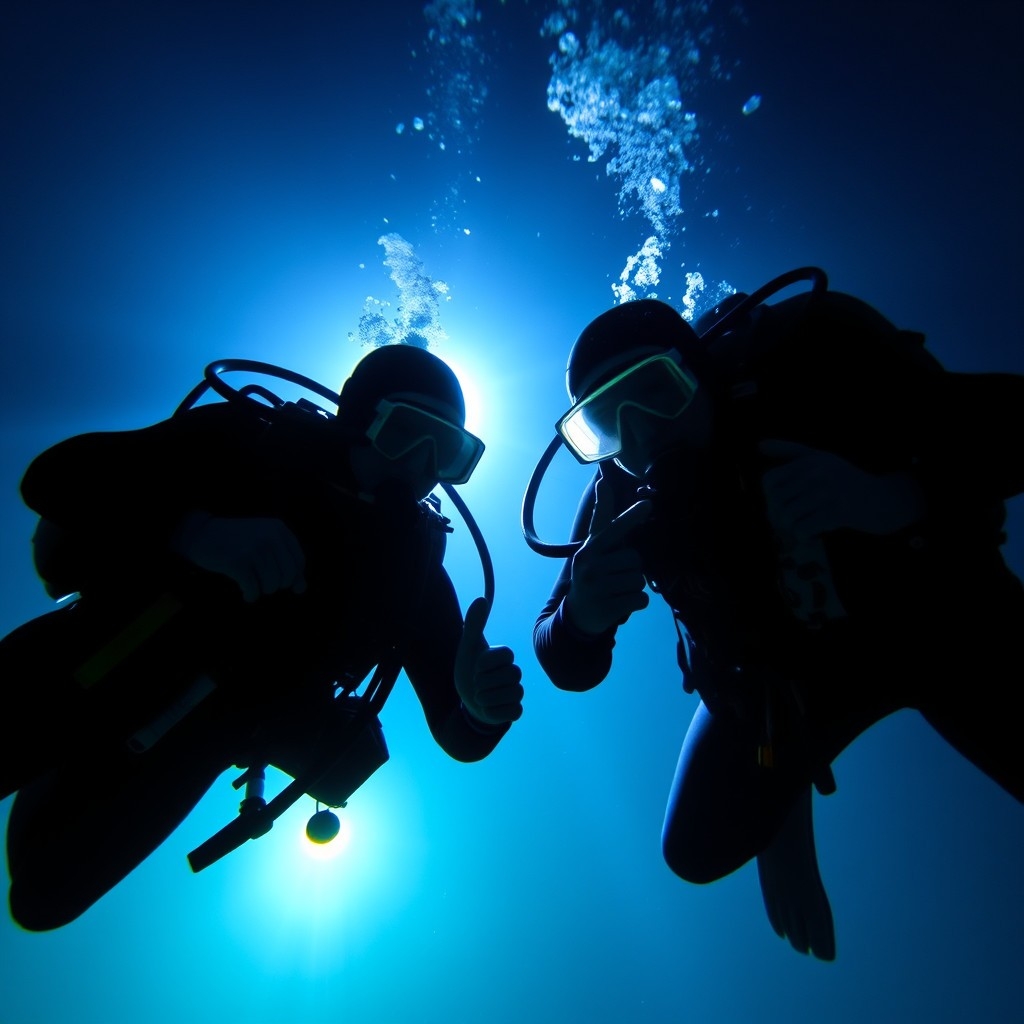
Caring for the Environment
Protecting the marine environment is important. Here's how you can help:
Don't Touch Anything
Avoid touching corals or animals. Some creatures are fragile or may react defensively.
Control Your Fins
Use gentle fin kicks to avoid stirring up sediment, which can harm delicate ecosystems.
Dispose of Waste Properly
Make sure you don't leave any trash or debris behind after your dive.
How Light Affects Marine Life
Understanding how your presence affects the underwater world is key:
Light Sensitivity
Some animals are sensitive to light and may be disturbed by it. Use your light sparingly when observing these creatures.
Night Feeding
Predators may use your light to hunt. Be mindful of where you shine your beam to avoid disrupting natural behaviors.
What You'll See Underwater at Night
The ocean at night holds many surprises. Here's what you might encounter:
Bioluminescence
In some areas, tiny organisms glow when the water is moved. Waving your hand can create trails of sparkling light.
Active Night-time Creatures
Octopuses and Squid: Watch them change colors and textures as they hunt.
Crustaceans: Spot crabs and lobsters coming out of hiding.
Sleeping Fish: See how some fish rest in the reef, sometimes changing colors or patterns.
Different Views
Your focus narrows to what's lit by your light, making the experience more intimate.
Top Night Diving Spots Around the World
There are great night diving locations worldwide, each offering unique experiences. Consider these places:
Kona, Hawaii
Dive with manta rays that feed on plankton attracted to lights. These gentle giants perform graceful loops above divers.
The Maldives
Clear waters and abundant marine life make for spectacular night dives. Explore coral reefs full of activity.
Egypt's Red Sea
Discover shipwrecks and vibrant coral gardens. The Red Sea's excellent visibility enhances the experience.
Bonaire, Caribbean
Known for shore diving, Bonaire offers easy access to night dives. Encounter tarpon and other nighttime hunters.
Florida Keys, USA
Explore reefs and shipwrecks. The warm waters attract various nocturnal life.
Sulawesi, Indonesia
Dive sites like Lembeh Strait are famous for rare and unusual creatures that are active at night.
Great Barrier Reef, Australia
Experience the world's largest coral reef system after dark, with chances to see sea turtles and reef sharks.
Local Dive Sites
Don't overlook nearby spots. Even familiar locations can reveal new wonders at night.
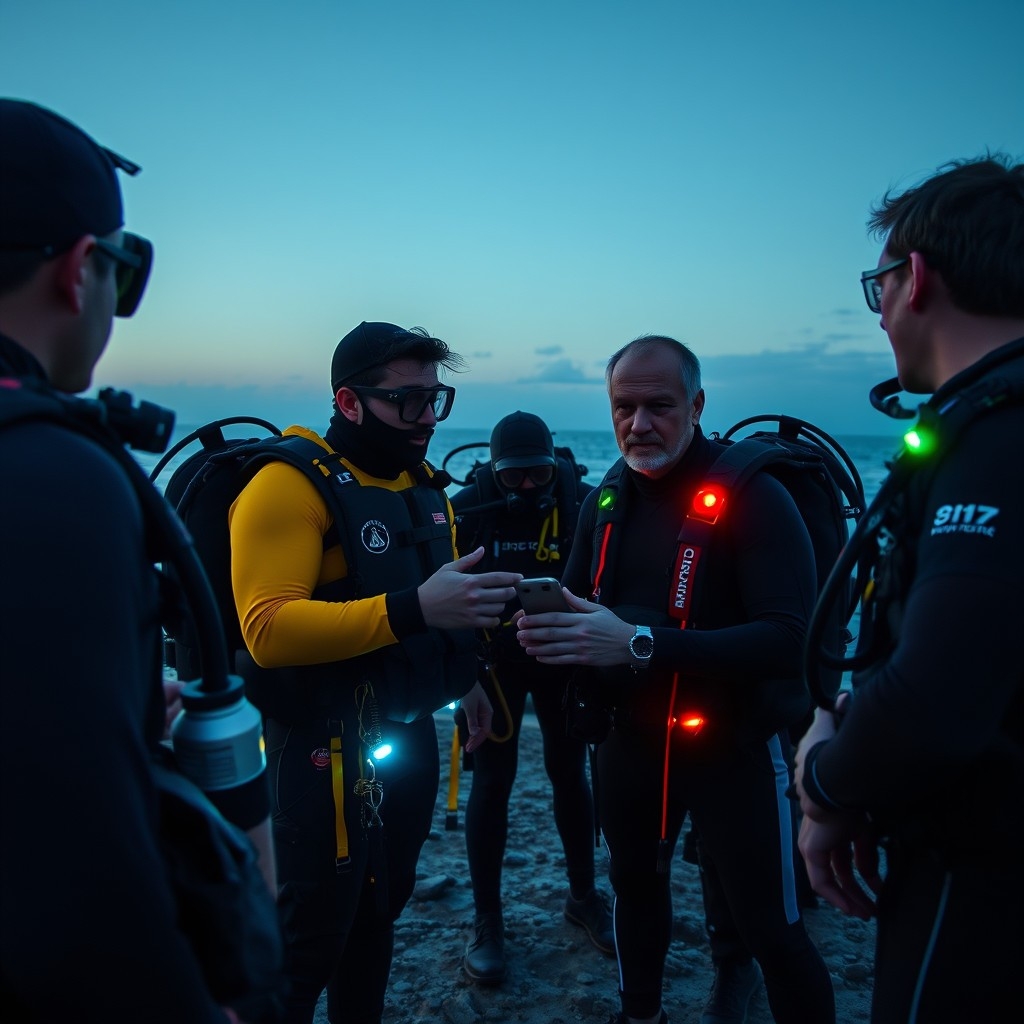
Tips for a Great Night Dive
To make the most of your night diving adventure, consider these suggestions:
Let Your Eyes Adjust
Give your eyes time to get used to the darkness before descending.
Take It Slow
Moving slowly increases your chances of spotting interesting creatures.
Stay Relaxed
Enjoy the calm of the underwater world at night. Let yourself soak in the experience.
Write About Your Dive
Afterwards, note down what you saw and felt. Keeping a dive log helps you remember and learn from each dive.
FAQ
Do I need special certification to go night diving?
While not always required, taking a night diving course is a good idea. It teaches important skills and safety protocols specific to diving in the dark.
What kind of flashlight should I use for night diving?
Choose a primary light that's bright, durable, and easy to handle. LED lights are popular for their brightness and long battery life. Don't forget a backup light in case your main one fails.
Is night diving safe for beginners?
If you're a certified diver and feel comfortable underwater, you can try night diving. It's helpful to gain experience with daytime dives first and to dive with an experienced buddy or instructor.
Can I see bioluminescent organisms during a night dive?
Yes! In many places, you can see bioluminescent plankton that glow when disturbed. Turning off your light briefly (when safe) can reveal these natural light displays.
How can I communicate with my buddy during a night dive?
Use light signals and hand signals illuminated by your dive light. Agree on signals beforehand, like waving your light to get attention.
What should I do if I feel nervous about night diving?
Start with a familiar dive site and go with someone experienced. Take things slowly, focus on your breathing, and remember that it's okay to surface if you're uncomfortable.
Does night diving affect marine life?
Lights can impact sea creatures. Some may be attracted or repelled by light. Being careful with where you point your light helps minimize disturbance.
What are some common risks of night diving?
Possible risks include getting disoriented, losing sight of your buddy, and equipment issues. Proper planning and training help reduce these risks.
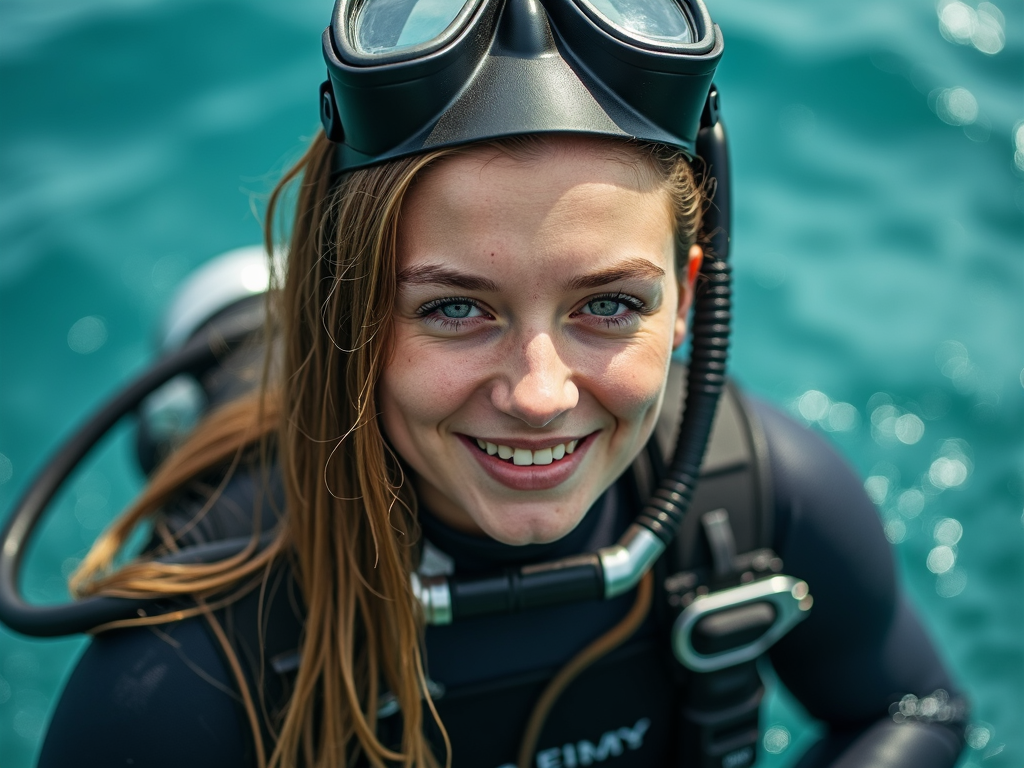
I'm a scuba enthusiast, and marine life lover. I enjoy writing about my diving adventures and sharing my knowledge with others.

I'm a passionate scuba diver and love to share my experiences with you. I enjoy writing about my experiences and sharing my knowledge with others.